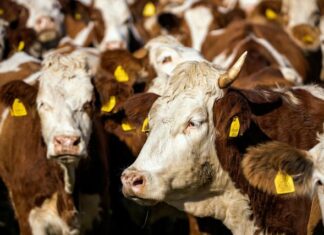Tony Hassall of Ballandean (SFT July 7) accuses me of making broad generalisations about climate change without any figures to back them up. Even though he is guilty of the same sin (I quote, “there has been a slight global cooling over the last 10 years”, with no corroborating data) I will provide some figures from respectable bodies such as the Intergovernmental Panel on Climate Change (IPCC).
In the century 1906 to 2005, the average surface temperature of the earth rose by 0.74°C. In the second half of this period the increase was twice what it had been in the first half. In the lower troposphere (the lowest layer of the atmosphere) there has been a 0.13-0.22°C rise per decade since 1979. 1998 was the hottest year on record, followed by 2005, then 2003 and 2010 in equal third position. The IPCC believes that 1998 was particularly warm because it coincided with the strongest El Nino event of the 20th century.
So much for the widely touted claims that the earth is actually cooling.
The 2007 IPCC report estimates that the global average temperature will have risen by 3.4°C (perhaps as low as 2.0°C or as high as 5.4°C) by 2100. This exceeds the 2.0°C increase recognised as dangerous climate change by the United Nations Framework Convention on Climate Change. Thus I stand by my assertion that we must take steps now to ameliorate climate change through cutting greenhouse gas emissions, rather than waiting and hoping for the best, as it seems that there is no “the best” to hope for.
Tony mentions that extra carbon dioxide in the atmosphere will benefit humanity by allowing plants to grow more rapidly and thus produce more food. However, carbon dioxide concentration is only one of several factors that influence plant growth. Research by the CSIRO, for example, suggests that in Australia and probably many other parts of the world, shortages of water due to climate change are likely to severely curtail the fertiliser effect of increased carbon dioxide levels. We would also need to increase the production of artificial fertilisers to enhance plant growth if we were to rely on extra carbon dioxide in the atmosphere to overcome food shortages in the future.
Ed Diery, Warwick








